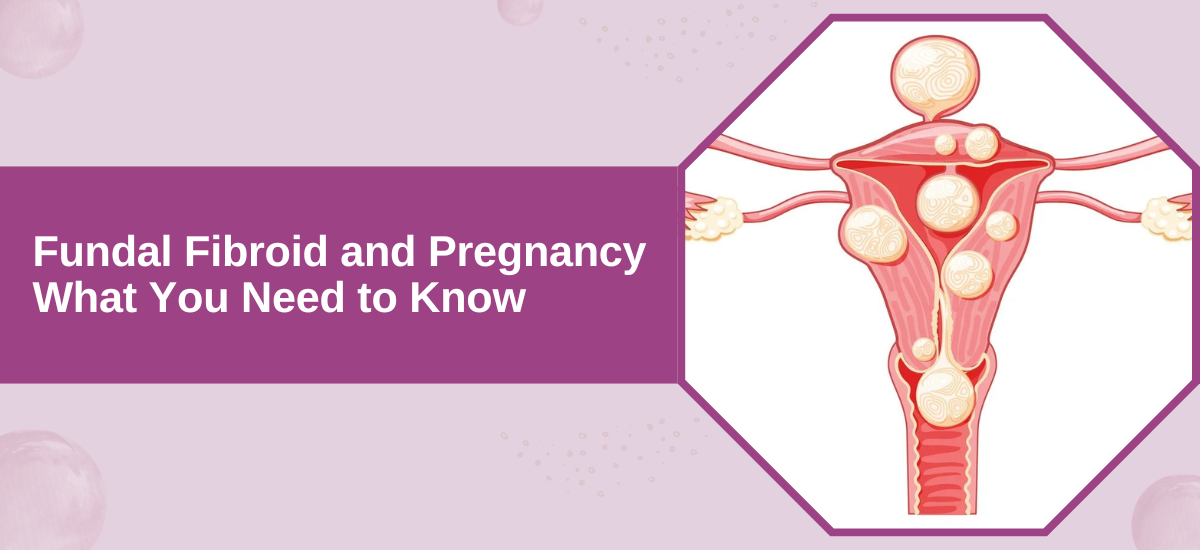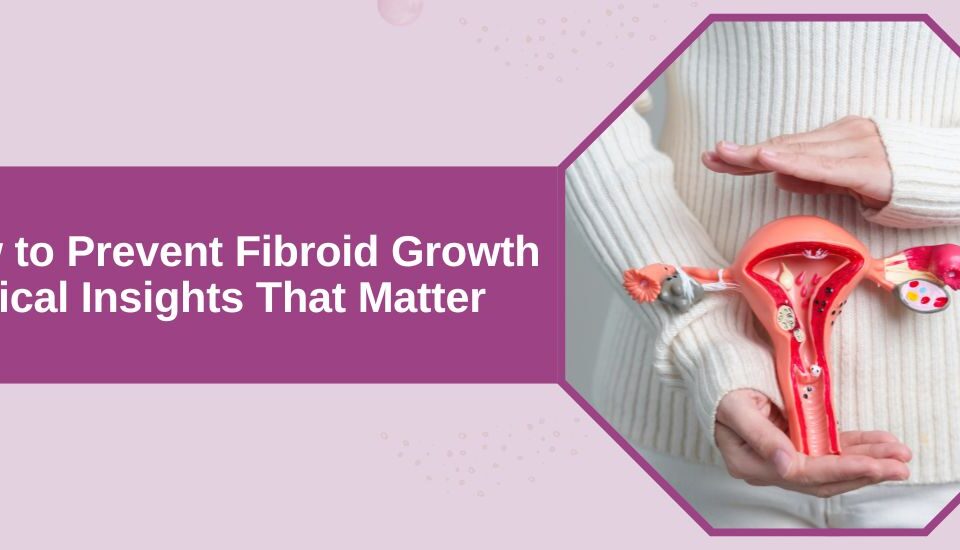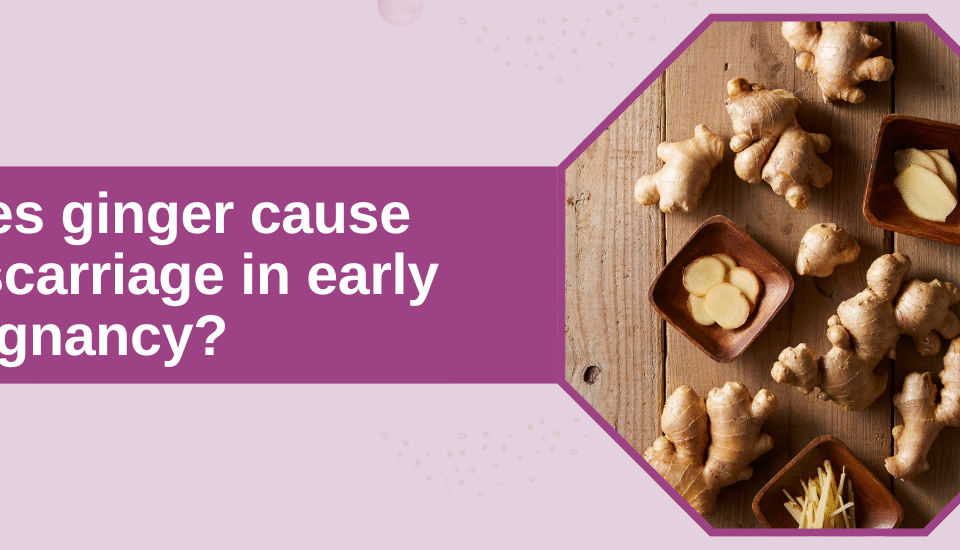- Have any questions?
- +91-98717 17305
- babiesandus12@gmail.com
Fundal Fibroid and Pregnancy

How to prevent fibroid growth
October 8, 2025
Period After 2 Years of Menopause: Causes, Risks & Medical Actions
January 14, 2026
Pregnancy usually comes with a mix of excitement, anticipation, and a touch of nervousness. It’s a time filled with dreams about the future but it can also bring unexpected challenges. One of those challenges for some women is fibroids.
Here’s why it’s concerning …
· Around 70–80% of women worldwide will develop fibroids by the time they reach 50.
· In India, the prevalence ranges between 25% and 40%, with many cases identified during reproductive years.
But there’s good news …
Nearly 80–90% of those fibroids are benign and manageable, which means there’s rarely a reason to panic. Staying informed and working closely with a trusted doctor makes all the difference.
Dr. Hrishikesh Pai, a pioneering fertility specialist and founder of Babies & Us Fertility IVF Centre in Mumbai, puts it perfectly: “Fibroids can, at times, alter the shape of the uterus or affect how an embryo implants. But that doesn’t mean the journey ends there. With timely monitoring and the right approach, most women with fibroids go on to have perfectly healthy pregnancies.”
Let’s understand why the position of a fundal fibroid matters more than its presence.
Fundal Fibroids – An Overview

A fundal fibroid is a type of uterine fibroid that develops in the upper part of the uterus, known as the fundus. Fibroids are non-cancerous growths made up of muscle and fibrous tissue that can vary in size from a few millimeters to several centimeters.
There are three major types of uterine fibroids:
Subserosal fibroids – Grow on the outer surface of the uterus.
Intramural fibroids – Develop within the muscular wall of the uterus.
Submucosal fibroids – Grow into the uterine cavity.
Fundal fibroids may belong to any of these types, but their location right at the top of the uterus can occasionally interfere with pregnancy implantation or growth if large in size.
Dr. Nandita Palshetkar, a prominent Fertility Doctor in Mumbai, explains, “A fibroid at the fundus can alter the uterine shape and affect blood flow to the developing embryo. However, the impact largely depends on the fibroid’s size, number, and proximity to the uterine cavity. Many women carry healthy pregnancies despite having small fundal fibroids.”
So, how does this growth in the upper uterus actually affect pregnancy? Let’s uncover the details.
The Impact of Fundal Fibroids on Pregnancy
The influence of a fundal fibroid on pregnancy depends on its size, location, and growth rate. Some women experience no symptoms, while others face pregnancy-related challenges. Here’s how fundal fibroids can affect pregnancy:
Implantation Issues: If the fibroid distorts the uterine cavity, it can interfere with the embryo’s implantation process.
Growth Restriction: Large fibroids may compete for blood supply, restricting fetal growth.
Placental Problems: Fundal fibroids can sometimes lead to placental abruption or placenta previa.
Preterm Labor: The uterus may become irritable due to fibroid pressure, triggering early contractions.
Delivery Complications: In some cases, fibroids can block the birth canal or necessitate a C-section due to fibroids.
Concerned about how fibroids might affect your pregnancy journey? Consult a fertility specialist for tailored advice and reassurance.
Now that you know how fibroids can interfere, let’s look at how your body may signal their presence.
Symptoms of Fundal Fibroids

While small fibroids often remain silent, larger ones can cause noticeable symptoms, particularly during pregnancy:
Abdominal Fullness: A feeling of heaviness or pressure in the abdomen.
Pain or Discomfort: Fibroids can cause pelvic pain, especially as they grow.
Frequent Urination: Pressure on the bladder can increase urination frequency.
Backache: The weight of a fundal fibroid may strain the lower back.
Heavy Periods (Before Pregnancy): Excessive menstrual bleeding is a classic symptom of fibroids.
Each woman’s experience is unique, and the symptoms can change as pregnancy progresses.
Curious about whether these fibroids can affect pregnancy continuation? Let’s explore
The Link Between Fibroids and Miscarriage
Fibroids don’t automatically mean you’ll have a miscarriage, but certain ones especially those that change the shape of the uterus can make the risk a little higher. Studies show that women with fibroids face about a 14% to 23% chance of miscarriage, while the rate for women without fibroids is closer to 7%. The chances increase if the fibroids are larger or if there are several of them.
Dr. Rohan Palshetkar, a well-known Infertility Specialist in Mumbai, explains it clearly:
“Having a fibroid doesn’t automatically mean you’ll lose a pregnancy. Many women with fibroids go on to have completely healthy babies. The key is staying on top of your care regular check-ups and early treatment go a long way in keeping both mother and baby safe. It’s less about fear and more about smart, proactive management.”
Understanding risks is one step knowing how to confirm a fibroid’s presence is another…
Let’s move to diagnosis.
Diagnosing Fundal Fibroids with Precision

Diagnosis plays a crucial role in managing Fundal Fibroid and Pregnancy. Medical professionals use several methods to detect fibroids accurately:
Ultrasound Scan: The most common and non-invasive method to detect fibroids and monitor their growth.
MRI Scan: Provides detailed images, especially for mapping fibroid size and location.
Pelvic Examination: A doctor may feel an enlarged or irregular uterus during a physical exam.
Hysterosonography or Hysteroscopy: These techniques offer a closer look inside the uterine cavity when implantation issues are suspected.
Early detection allows doctors to plan personalized care, ensuring both mother and baby remain healthy throughout the pregnancy.
Unsure whether fibroids could affect your fertility or pregnancy outcomes? Schedule an evaluation with a fertility expert to discuss your options confidently.
Wondering how to manage these fibroids without risking pregnancy health? Let’s learn the tips to …
Managing Fundal Fibroids During Pregnancy
Managing fibroids during pregnancy requires a balanced approach prioritizing the baby’s safety while ensuring the mother’s comfort. Here are common strategies used:
Regular Monitoring: Frequent ultrasounds help track fibroid growth and its impact on the fetus.
Pain Management: Safe pain-relief medications may be prescribed if fibroids cause discomfort.
Lifestyle Adjustments: Staying hydrated, maintaining a balanced diet, and gentle exercise can improve uterine health.
Bed Rest (if advised): In cases of preterm contractions or pain, limited physical activity may be recommended.
Surgical Intervention (Post-Delivery): Myomectomy, the removal of fibroids, is usually reserved for after childbirth unless medically urgent.
Managing is one thing, but prevention and self-care go hand-in-hand. Let’s explore how you can enjoy a smoother pregnancy even with fibroids.
Tips for a Healthy Pregnancy with Fundal Fibroids

With the right care, many women successfully navigate pregnancy despite fibroids:
Attend All Prenatal Visits: Regular check-ups help detect and manage potential issues early.
Eat Nutrient-Rich Foods: Focus on iron, calcium, and fiber to combat anemia and support uterine health.
Stay Hydrated: Proper hydration helps manage uterine contractions.
Avoid Stress: Mindfulness and prenatal yoga can improve mental well-being.
Follow Medical Advice: Never skip prescribed medications or recommended scans.
We’ve covered the facts now let’s wrap it up with expert insights and reassurance for expectant mothers.
Conclusion
Fundal fibroids can sound intimidating, but with early detection and professional guidance, most women go on to have successful pregnancies. Modern obstetric care allows for close monitoring and timely interventions, reducing risks significantly.
Dr. Hrishikesh Pai, a seasoned IVF expert in Mumbai, concludes:
“Every pregnancy is unique, and having a fibroid doesn’t define its outcome. With today’s medical advancements, individualized care plans ensure mothers and babies stay safe. The focus should always be on positivity, awareness, and informed decisions.”
Experiencing symptoms or have questions about fibroids and pregnancy? Speak with a qualified fertility specialist for clarity and peace of mind.
Still have doubts? Here are some frequently asked questions that can help clear them up.
FAQs
Can I get pregnant with a fundal fibroid?
Yes. Many women with fundal fibroids conceive naturally. The impact depends on the fibroid’s size and position, but with medical supervision, pregnancy is often possible.
Do fibroids cause miscarriage?
They can increase the risk, especially if they distort the uterine cavity or affect blood flow to the embryo. However, regular monitoring can help manage this risk effectively.
Will I need a C-section if I have a fundal fibroid?
Not necessarily. A C-section due to fibroids is only recommended if the fibroid obstructs the birth canal or interferes with the baby’s position.
Can fundal fibroids shrink after pregnancy?
Yes, in some cases, fibroids naturally shrink after childbirth due to hormonal changes, though this varies among women.
Are there treatments for fundal fibroids before pregnancy?
Yes. Myomectomy or medication therapy may be recommended before conception to improve fertility outcomes. Always discuss options with your doctor.
References:
Disclaimer: The information shared in this content is for educational purposes only and not for promotional use.




